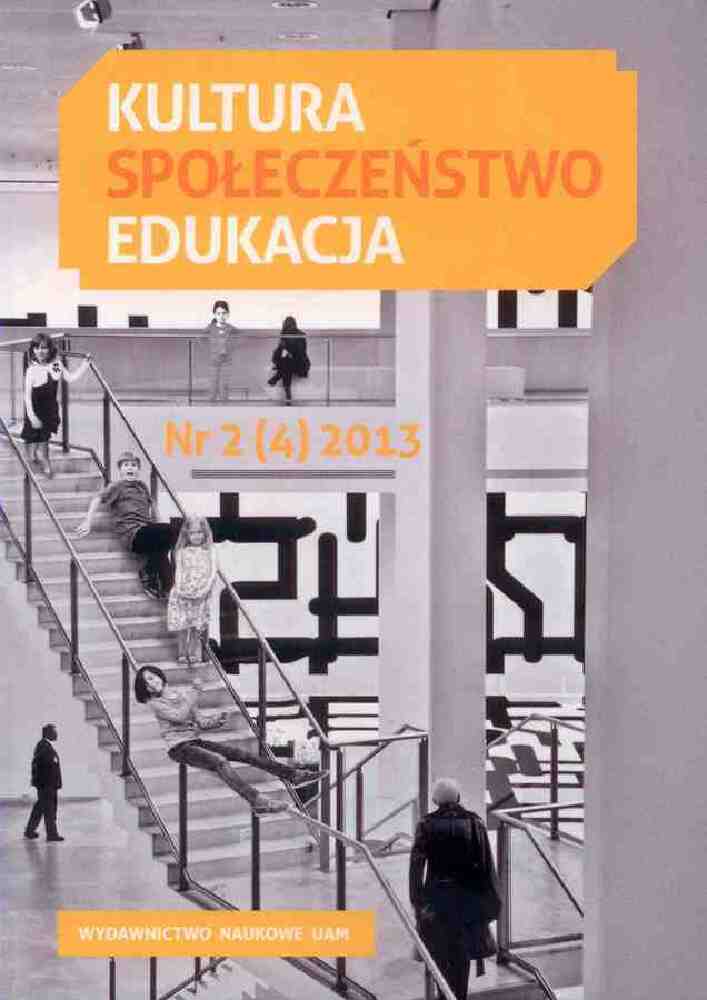Abstrakt
The paper presents contemporary discussion about consumerism in academia. Commercialization of higher education is widely discussed among scholars. Some of them condemn the commodi cation of higher education as well as the neoliberal approach. The others perceive the market orientation in HE as the necessity and the next step in this area development. The orientation on students as a customer is widely discussed in the literature. The author of this paper reconstructs and analyses selected problems of commercialization and consumerism in academia, including the relationship between the tutor and the student replaced by the producer- consumer relationship, grades in ation, student satisfaction and infantilization of education. Moreover, the author of the paper makes attempt to analyze di erent approaches towards consumerism in academia and presents a contrasting orientation towards problem in question.Bibliografia
Barber B. 2008. Skonsumowani. Jak rynek psuje dzieci, infantylizuje dorosłych i połyka obywateli. Warszawa.
Bauman T. 2003. Zagrożona tożsamość uniwersytetu. W Uniwersytet – między tradycją a wyzwaniami współczesności. Kraków.
Bauman Z. 2009. Konsumowanie życia. Kraków.
Boretz E. 2004. „Grade Inflation and the Myth of Student Consumerism”. College Teaching 52 (2): 42-46.
Brickhead T. 2007. Umbilical Culture: Standards and Grade Inflation. W Can the Prizes Still Glitter? The Future of British Universities in a Changing World. Buckingham.
Cardoso S., T. Carvalho, R. Santiago. 2011. „From Students to Consumers: Reflections on the Marketisation of Portuguese Higher Education”. European Journal of Education 46 (2). Part II.
Clegg P. 2008. „Creativity and Critical Thinking in the Globalised University”. Innovations in Education and Teaching International 45 (3): 219-226.
Evans M. 2002. Did I Sign Up for This? Comments on the New Higher Education. W The McDdonaldization of higher education. London.
Field K. 2011. „Faculty at For-Profits Allege Pressure to Keep Students Enrolled. Instructors Say They Have Been Encouraged to Dumb Down Courses and Change Failing Grades”. The Chronicle of Higher Education. October.
Fox C. 2002. The Massification of Higher Education. W The McDdonaldization of Higher Education. London.
Fuerdi F. 2002. The Bureaucratization of British University. W The McDdonaldization of Higher Education. London.
Gardner H. 2005. Beyond Markets and Individuals: a Focus on Educational Goals. W Declining by Degrees: Higher Education at Risk. New York.
Germain M.L., T.A. Scandura. 2005. „Grade Inflation and Student Individual Differences as Systematic Bias in Faculty Evaluations”. Journal of Instructional Psychology 32 (1): 58-65.
Gibbs P. 2009. „Adopting Consumer Time: Potential Issues for Higher Education”. Review of Education 7 (2): 113-124.
Gosling D. 2013. Quality Enhancement in England. W Enhancing Quality in Higher Education. International Perspectives. New York-London.
Hayes D. 2002. Taking the Hemlock? The New Sophistry of Teacher Training for Higher Education. W The McDdonaldization of Higher Education. London.
Hayes D., R. Wynyard. 2002. Introduction. W The McDdonaldization of Higher Education. London.
Hejwosz D. 2010. Edukacja uniwersytecka i kształcenie elit społecznych. Kraków.
Hudson A. 2002. From Power Play to Market Moves: The Standard in Higher Education. W The McDdonaldization of Higher Education. London.
Kezim B., S.E. Pariseu, E. Quinn. 2005. „Is Grade Inflation Related to Faculty Status?”. Journal of Education for Business. July/August.
Kirp D.L. 2005. This Little Student Went to Market. W Declining by Degrees: Higher Education at Risk. Basingstoke.
Kohn A. 2004. What does it mean to be well educated? Boston.
Land R., G. Gordon. 2013. Enhancing the Future. Context and Fidelity. W Enhancing Quality in Higher Education. International Perspectives. New York-London.
Lewis H.R. 2006. Excellence Without Soul. How a Great University Forgot Education. New York.
Melosik Z. 2002. Uniwersytet i społeczeństwo. Dyskursy wolności, wiedzy i władzy. Poznań.
Molesworth M., E. Nixon, R. Scullion. 2009. „Having, Being and Higher Education: The Marketisation of the University and the Transformation of the Student Into Consumer”. Teaching in Higher Education 14 (3): 277-287.
Murphy M. 2011. „Troubled by the Past: History, Identity and the University”. Journal of Higher Education Policy and Management 33 (5): 509-517.
Oxenham M. 2013. Higher Education in Liquid Modernity. New York-London.
Parker M. 2002. Total Quality Control. Universities, Language and Politics. W The McDdonaldization of Higher Education. London.
Potts M. 2005. “The Consumerist Subversion of Education”. Academic Questions. Summer.
Regan J.A. 2012. „The Role Obligations of Students and Lecturers in Higher Education”. Journal of Philosophy of Education 46 (1): 14-24.
Poynter G. 2002. Modules and Markets: Education and Work in the „Information Age”. W The McDdonaldization of Higher Education. London.
Ritzer G. 2002. Enchanting McUniversity: Toward a Spectacularly Irrational University Quotidian. W The McDdonaldization of Higher Education. London.
Singleton-Jackson J.A., D.L. Jackson., J. Reinhardt. 2010. „Students as Consumers of Knowledge: Are They Buying What We’re Selling?”. Innovative Higher Education 35: 343-358.
Licencja
Prawa autorskie (c) 2017 Daria Hejwosz-Gromkowska

Utwór dostępny jest na licencji Creative Commons Uznanie autorstwa – Bez utworów zależnych 4.0 Międzynarodowe.
